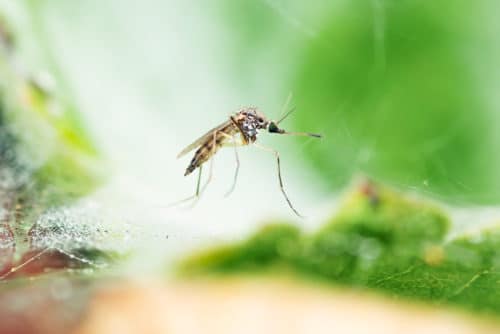MALARIA
WHAT IS MALARIA ?

WHAT IS THE RISK FOR TRAVELERS ?
All the travelers going to Africa, to Asia, to Central America, to Eastern Europe, to South America, to the Caribbean and to South Pacific islands are at risk for malaria. This risk considerably increases if they spend a lot of time outdoors or if they sleep outside. Every year, more than 1 500 cases of malaria, including 5 deaths on average, occur among international travelers in the United States.
MALARIA : RISK AND PREVENTION WHILE TRAVELING
Malaria is a fatal disease caused by a parasite, which is transmitted to human through the bite of a contaminated mosquito. On average, one person dies of malaria every 15 seconds in the world. Although the disease mostly affects Africa, it may be present in every tropical country on the planet. Travelers are potentially at high risk of malaria. In France, about 5 000 travel-related cases of the infection are recorded every year, including 20 deaths. If you intend to travel to Africa, to Asia, or to any other area where malaria is present, you must take some precautions to protect yourself against the disease.
BEFORE YOUR DEPARTURE
Before traveling, it is important to see a doctor, who will prescribe you a prophylaxis treatment to prevent malaria. Note that anti-malarial medicines can not be purchased without a medical prescription. You should be aware that to be effective, this preventive treatment must be started up to a week before your departure, continued while you are traveling and maintained during one month after your return, without any interruption.
Pregnant women are particularly vulnerable to malaria and should not go to an area affected by the disease. If you are pregnant and you can not avoid traveling to a country where malaria is present, it is essential that you talk to your doctor about your trip prior to your departure. Note that some anti-malarial treatments are contraindicated during pregnancy. Among the authorized drugs, quinine, chloroquine and proguanil can be quoted. Also, be aware that you will have to use mosquito repellents with extreme caution during your stay in the infected country.
WHILE TRAVELING
While traveling, you must strictly follow your preventive treatment for malaria. In addition, you must protect yourself efficiently against mosquito bites :
- Wear clothes entirely covering your skin, such as long pants and long sleeves, especially between sunset and sunrise (as the mosquitoes responsible for malaria are most active during this period). Preferably wear lightly colored clothes, which are less attractive for insects.
- Apply mosquito repellent on exposed skin, on your clothes and on your mosquito net. Insect repellents usually remain effective during 2 to 12 hours, depending on the concentration of active ingredients they contain.
- Before going to bed, close the door and the windows, and meticulously check your room for mosquitoes.
- Always sleep under a mosquito net. Check that there are no holes in it, and that is it correctly enveloping your whole mattress.
AFTER YOUR RETURN
After your return, it is important that you continue taking your preventive treatment for malaria, even if you don’t feel sick and you have correctly protected yourself against mosquitoes while traveling. If you experience a fever, you must see a doctor immediately, as it could be the beginning of a malaria attack. To confirm the diagnosis, you will have to undergo a blood test. In less than two hours, you will have the results and know if malaria parasites are present in your blood cells. To treat malaria, quinine is often used. But note that other medicines are also effective against the disease.
HOW TO PREVENT MALARIA ?
If you intend to travel to a country at risk for malaria, you should take some precautions to avoid being infected with the disease and to protect yourself efficiently against mosquito bites.
- Before your departure, you should see a doctor. He will help you to evaluate your risk of exposure to malaria and, if necessary, he will prescribe you medicines to prevent the disease. Note that these drugs must be taken before, during and after your trip without interruption.
- While traveling, protect yourself efficiently against mosquito bites, especially between sunset and sunrise. Wear protective clothes, such as trousers, long-sleeved shirts and hats. Apply mosquito repellent on exposed skin. Preferably choose a repellent providing long lasting protection and containing a high percentage of active ingredients, such as DEET, Picaridin and IR3535. Always use repellents with caution and follow product instructions. Avoid applying repellent in your eyes, in your mouth and on your hands. When using sunscreen, apply the sunscreen first and the repellent right after. You can also use Permethrin-treated clothing and gear, which provide optimal protection against mosquitoes, even after several washes. You can find pre-treated items in specialized shops, but it is also possible to treat your own belongings, such as pants, socks, boots and tents. Avoid direct contact with skin when handling Permethrin. Always sleep under a mosquito net, especially if your room is exposed outdoors or if you are sleeping outside.
WHAT TO DO IN CASE OF MOSQUITO BITES ?
If you have been bitten by a mosquito, avoid scratching the affected area. Immediately apply hydrocortisone-based cream or calamine lotion to reduce itching.
IF YOU FEEL SICK :
If you feel sick after traveling in a country at risk for malaria, you should see a doctor as soon as possible, especially if you have a fever. Inform him/her of the areas you have visited and of your activities there.
We make every effort to ensure that the information posted on our website is up to date and accurate according to the latest public health recommendations; however, it is impossible for us to make changes on a daily basis.
For the most current travel health recommendations, please call our clinic as make an appointment with one of our travel health professionals.
